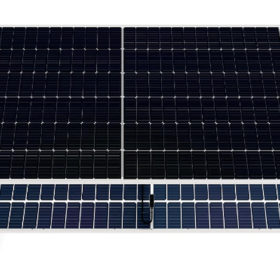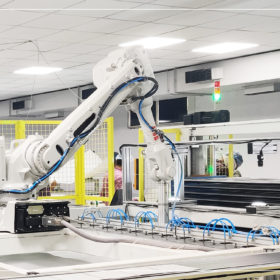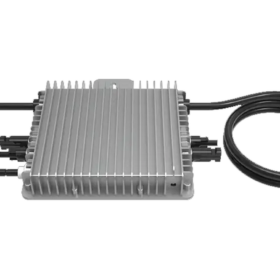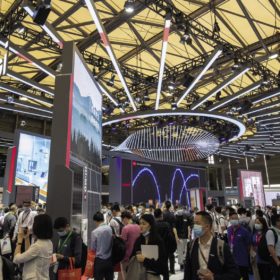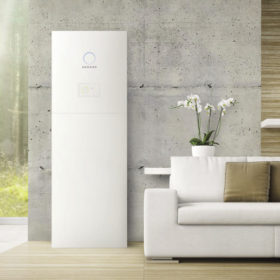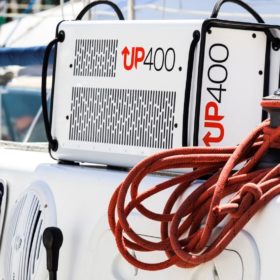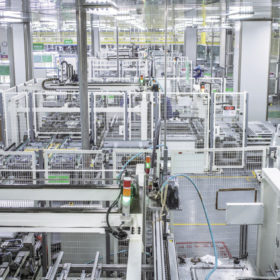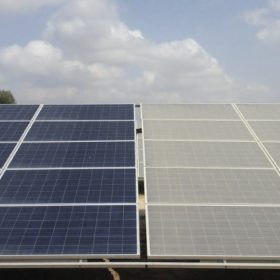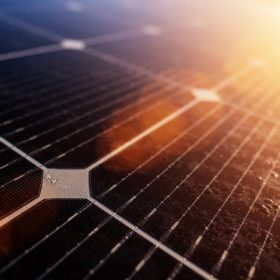Solar module for floating PV from Hyundai
The bifacial panel has a power output of up to 485 W and an efficiency of up to 21%. It relies on a transparent backsheet and is encapsulated with polyolefin elastomer (POE).
Rayzon Solar to add 1.2 GW of mono PERC module capacity
The Gujarat-based manufacturer is scaling its production lines up to 1.5 GW with the addition of 1.2 GW of mono PERC output capacity by the end of December. The new line will produce up to 600Wp panels with an efficiency of 21.4%.
Micro-inverter for balcony solar modules
Two different devices designed by German manufacturer Bosswerk can feed up to 300 or 600 watts into the home network. The company offers a 12-year guarantee.
The long read: SNEC’s solar trends in 2021
All eyes are drawn to China every year for SNEC, the world’s biggest solar PV expo, as it invariably features a large number of new products from the key Chinese manufacturers. Vincent Shaw was on the scene in Shanghai this year and took the opportunity to take the industry’s pulse.
Sonnen battery still running after 28,000 full charge cycles
Sonnen has published test results indicating the longevity of its storage systems after extended use.
Earth sciences ministry revisiting weather forecast approach to suit solar sector needs
The Ministry of Earth Sciences will strengthen meteorological forecasting activities in sync with the demands of the solar and wind energy sector stakeholders. It is already working on a five-year (2021-26) plan, said M. Rajeevan, Secretary, MoES, at a virtual workshop conducted recently.
Portable hydrogen fuel cell generator with power output of 400 W
The generator can be combined with batteries, solar panels, or small wind turbines. It is based on a proton exchange membrane fuel cell technology and is claimed to have a minimum lifetime of 5,000 working hours.
JinkoSolar claims 23.53% efficiency for n-type, TOPCon, monocrystalline panel
The PV module relies on Jinko’s TOPCon mono cell technology, for which a record efficiency of 25.25% was announced in late May. TÜV Rheinland has confirmed the result.
The long read: The impact of dust on solar panels matters
Anil Kottantharayil currently leads the Centre for Research in Nanotechnology and Science, as well as the Sophisticated Analytical Instrument Facility, at the Indian Institute of Technology (IIT) Bombay. He works on high-efficiency crystalline silicon solar cells, the impact of dust on solar panels, and the long-term reliability of photovoltaic modules.
All solar cell efficiencies at a glance
The research group led by Professor Martin Green has published Version 58 of the Solar cell efficiency tables. He spoke with pv magazine about the criteria with which these tables are compiled and the importance of result certification by independent third parties.
